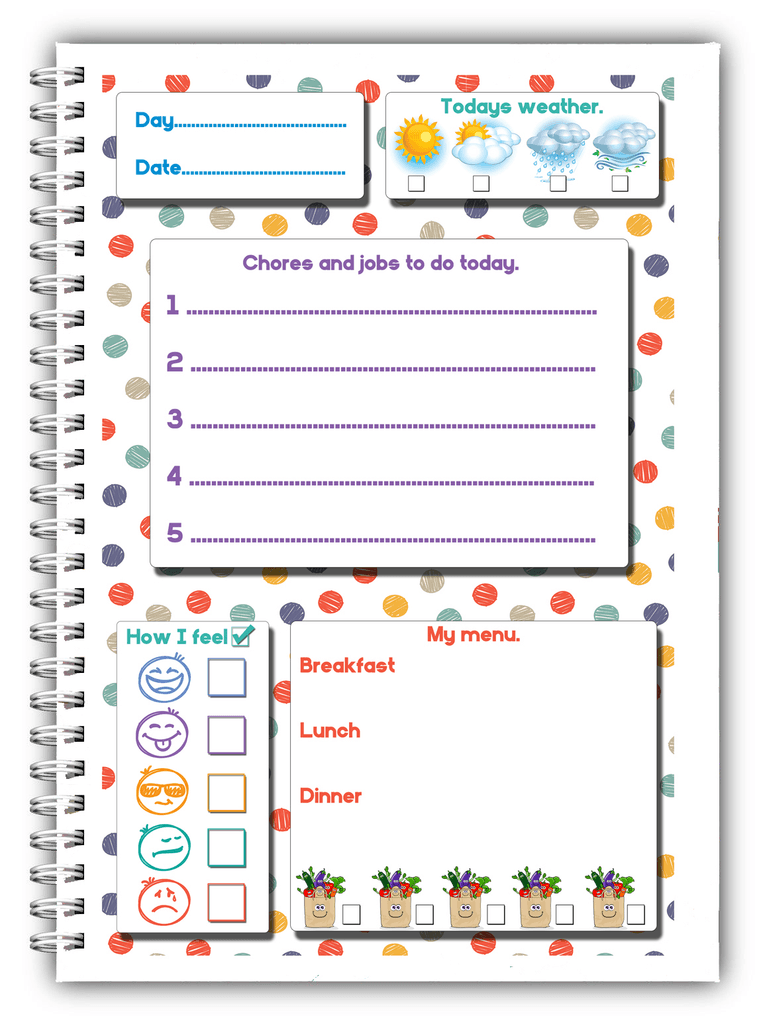Metacognition is the ability to reflect on one's own thinking processes and learning strategies. Developing metacognitive skills at home can greatly benefit children and can produce very good educational outcomes.
By encouraging reflective practices, identifying strengths, and using organisational tools like planners, parents can help their children become more self-aware and effective learners.
This article focuses on how you can improve metacognitive skills at home.
Reflective Diaries
Reflective diaries are journals where children can record their thoughts about their learning experiences, noting what strategies worked well and what they found challenging. This practice helps them become more aware of their own learning processes and encourages continuous improvement.
How this helps
Using a reflective diary fosters self-awareness and critical thinking. It allows children to analyse their learning experiences, identify successful strategies, and recognise areas where they need more support.
Tips
Daily Reflections:
Encourage your child to spend a few minutes each day writing about their learning experiences. Prompt them with questions like "What did I learn today?" or "What was the most challenging part of my day?"
Celebrate Successes:
Make sure your child also records their successes, no matter how small. This helps build a positive mindset and reinforces the strategies that are working well.
Review Together:
Periodically review the diary entries with your child to help them identify patterns in their learning. Discuss ways to overcome challenges and celebrate their progress.
Strength Finder Exercise
A Strength Finder exercise is a tool that helps children identify their strengths and interests. Focusing on these strengths helps build confidence and provides a foundation for addressing areas of difficulty. You can use our worksheet here.
How this helps
By regularly recognising and supporting a child's strengths, parents can help boost their self-esteem and motivation. Focusing on strengths also creates a more positive and supportive learning environment, which is especially important for children who may struggle with certain tasks.
Tips
Daily Strength Recognition:
Make it a daily habit to point out at least one strength or achievement. This could be related to schoolwork, hobbies, or social interactions. For every challenge discussed, aim to highlight at least ten strengths.
Leverage Strengths in Learning:
Once strengths are identified, find ways to incorporate them into your child’s learning activities. For example, if they have a strength in creativity, use drawing or storytelling to help them understand new concepts.
Use a Planner
Planners and schedulers are organisational tools that help children manage their time and tasks effectively. For children who struggle with time management or need more structure, using a planner can provide the necessary support to keep them on track.
How this helps
Planners help children break down tasks into manageable steps, track deadlines, and ensure they allocate enough time for each activity. This structured approach reduces anxiety around managing multiple tasks and helps children develop essential time management skills.

Practical Implementation
Daily Planner Use
Introduce a daily planner where your child can write down their tasks, homework, and other activities. Help them prioritize tasks and allocate time for each one.
Review and Adjust
At the end of each day, review the planner with your child to see what they accomplished and what might need to be adjusted for the next day. This helps them develop a flexible approach to managing their time.
Incorporate Reminders
Use the planner to set reminders for important tasks and deadlines. Encourage your child to check their planner regularly throughout the day to stay on top of their responsibilities.

